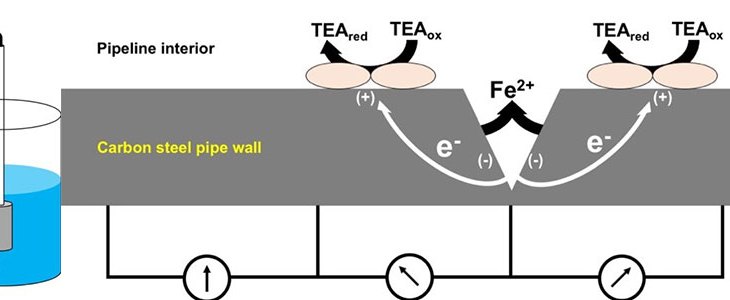How to Apply
Interested in participating in this research project? Contact the professor or graduate student listed below.
Professors
Dr. Chelsea Monty-Bromer (Chemical, Biomolecular, and Corrosion Engineering) | cm78@uakron.edu
Dr. John Senko (Biology) | senko@uakron.edu
Graduate Students
Anwar Sadek | as242@zips.uakron.edu
Sai Prasanna Chinthala | sc184@zips.uakron.edu
Project Description

There are over 300,000 miles of natural gas transmission pipeline in the US (Pipeline 101 see web addresses; P&GJ paper 2016). To meet the growing need to transport shale gas in the US, approximately 3,400 miles of new gas pipeline were constructed in 2015-2017 (ferc.gov), and that trend is likely to continue, as the US continues to develop as a major natural gas and petroleum exporter. Given the recent development of natural gas extraction activities from the large Marcellus and Utica plays, a large fraction of this new pipeline infrastructure will be concentrated in eastern Ohio and western Pennsylvania. Given the extent and expected expansion of natural gas transmission pipelines in a relatively densely populated portion of the US, a pressing need to maintain the integrity of those pipelines has arisen. Notably, these pipelines are susceptible to corrosion. Carbon steel remains the major material for these transmission pipelines, as their diameter and length make more corrosion-resistant alloys cost prohibitive (Nyborg, 2005; Beavers and Thompson, 2006). As such corrosion monitoring strategies are necessary to minimize the risk of pipeline failure due to corrosion. Financial impacts of corrosion may exceed $10 billion annually, with a large fraction of the damage caused by microbial activities, in a process called microbially influenced corrosion (MIC) (Koch et al., 2001; Bartling, 2016).

Unfortunately, corrosion that is attributable to microbiological activities is exceedingly difficult to monitor, predict, and quantify. We are developing an innovative split-chamber/zero resistance ammetry (SC-ZRA)-based approach to electrochemically detect microbially influenced corrosion in natural gas pipelines so that we can more sensitively monitor the growth of corrosion-inducing microbial communities. The overall goal of the project is to use the SC-ZRA approach to establish electrochemical “signatures” of microbiological activities that lead to corrosion. To that end, we will conduct a series of laboratory incubations using whole or reconstructed microbial communities and isolated microorganisms from natural gas pipelines and evaluating the corrosive activities of these organisms using the innovative ZRA technique. Development of the ZRA technique will result in robust, sensitive, low maintenance, and widely deployable MIC monitoring approaches.

Project Dates
Fall 2019, Spring 2020
Search Terms
Corrosion, For Credit, Non-Credit, Funded, Non-Funded, STEM
